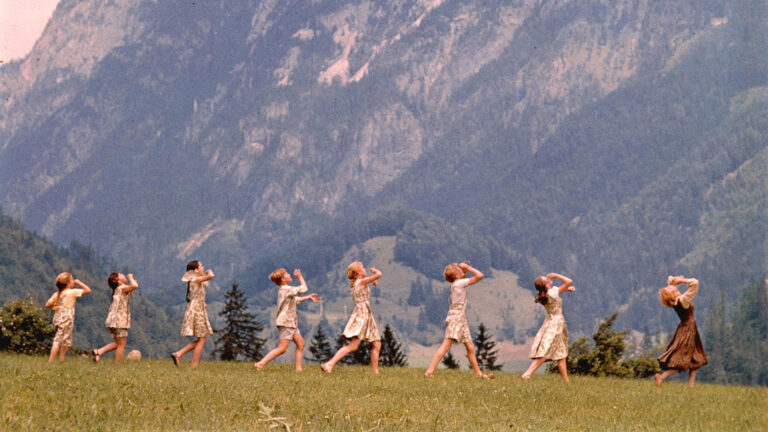If Christmas carols bring to mind images of hot chocolate and coziness, you have them in the wrong mental category. Carols contain some of the deepest theology of all hymnody. If you don’t believe me, you should spend some time with “Hark, the Herald Angels Sing” or “Joy to the World.”
While “O Little Town of Bethlehem” may be associated with nativity plays and children nestled all snug in their beds, it contains this bold and compelling claim: “The hopes and fears of all the years are met in thee tonight.”
What does this mean? How were the hopes and fears of all the years met in Bethlehem the night Jesus was born?
Hope Fulfilled
Jesus fulfills the hopes of all the years in a specific way; he is the long-awaited Messiah. His coming had first been promised to Adam and Eve in Genesis 3:15. His birth—of a virgin in the city of David—had been foretold by prophets centuries before (Isa. 7:14, Mic. 5:2). Jesus was the promised lamb of God, the hope of Israel, pictured for years through sacrifice at Passover. He fulfills the hopes of all the years that our sins would be laid on him who alone is able to bear the wrath of God.
Though at Christmas we may remember him as a baby, he is the baby who came to make right what’s wrong with the world. The same infant born in a Bethlehem stable would, as a man, carry a cross down Jerusalem’s streets to Golgotha, where he died as the ultimate Passover sacrifice.
Fears Assuaged
We can also be comforted by the idea that Jesus assuages our fears. If your greatest fear is loneliness or rejection, Jesus has answered that fear. Through Jesus, we have been so loved by God that nothing in creation can separate us from him (Rom. 8:39). If you fear storms and tempests, Jesus has the power to calm them with a word (Matt. 8:26). Worried that your needs might not be met? Jesus has promised that his Father will meet our material needs (Matt. 6:33). Fearful of death? Jesus has conquered it (1 Cor. 15:54). Death is no longer terminal.
The birth of this baby in Bethlehem pierced the darkness of our fears the way a lit match overtakes the darkness of a cavern. Its light may be small, but darkness cannot overcome light, and the light of a match leads to a roaring, blazing glow. Christmas would be followed by Good Friday and Easter, and Christ’s first coming will be followed by his return, after which there will be nothing left to fear and no darkness left to flee.
Fears Realized
But there is another way in which the “fears of all the years” are met in Jesus on the night of his birth. The coming of Jesus is the coming of a rival to the throne of your life. Herod’s fears were met in Jesus because he dreaded all threats to his rule. He tried to snuff out the life of the baby king, but no human despot can thwart the sovereign plan of God. We know from the historian Josephus that Herod died an excruciating natural death while Jesus lived on.
You may fear bowing down to someone greater than yourself. You may fear encountering one who is more upright than you are. Jesus is Lord of all creation, and he is perfectly pure and righteous. The light of his holiness shows us how sinful we are, and the claims of his kingdom reveal the extent of our rebellion.
Perhaps the thought that there is life after death causes you to fear rather than to hope because you know that for you it means eternal punishment (Matt. 13:41-42). You fear to meet Jesus as your judge, but that is what he will be. You don’t want to stand before his judgment throne because you know you will be found guilty.
If that is your fear, let it be assuaged in Jesus rather than met in him. There is hope, even for those of us who deserve the judgment of God. Jesus suffered God’s wrath for us. The Bible says, “God made him who had no sin to be sin for us, so that in him we might become the righteousness of God.” (2 Cor. 5:21). Though Jesus was innocent, he entered a guilty plea. If you are willing, he will give you his righteousness in exchange for your sin and the eternal death you deserve.
Are you willing to make that exchange? Whether you make it or not, the hopes and fears of all your years were met in Bethlehem. But, as the carol promises, “where meek souls will receive him still, the dear Christ enters in.”
Download your free Christmas playlist by TGC editor Brett McCracken!
 It’s that time of year, when the world falls in love—with Christmas music! If you’re ready to immerse yourself in the sounds of the season, we’ve got a brand-new playlist for you. The Gospel Coalition’s free 2025 Christmas playlist is full of joyful, festive, and nostalgic songs to help you celebrate the sweetness of this sacred season.
It’s that time of year, when the world falls in love—with Christmas music! If you’re ready to immerse yourself in the sounds of the season, we’ve got a brand-new playlist for you. The Gospel Coalition’s free 2025 Christmas playlist is full of joyful, festive, and nostalgic songs to help you celebrate the sweetness of this sacred season.
The 75 songs on this playlist are all recordings from at least 20 years ago—most of them from further back in the 1950s and 1960s. Each song has been thoughtfully selected by TGC Arts & Culture Editor Brett McCracken to cultivate a fun but meaningful mix of vintage Christmas vibes.
To start listening to this free resource, simply click below to receive your link to the private playlist on Spotify or Apple Music.


































